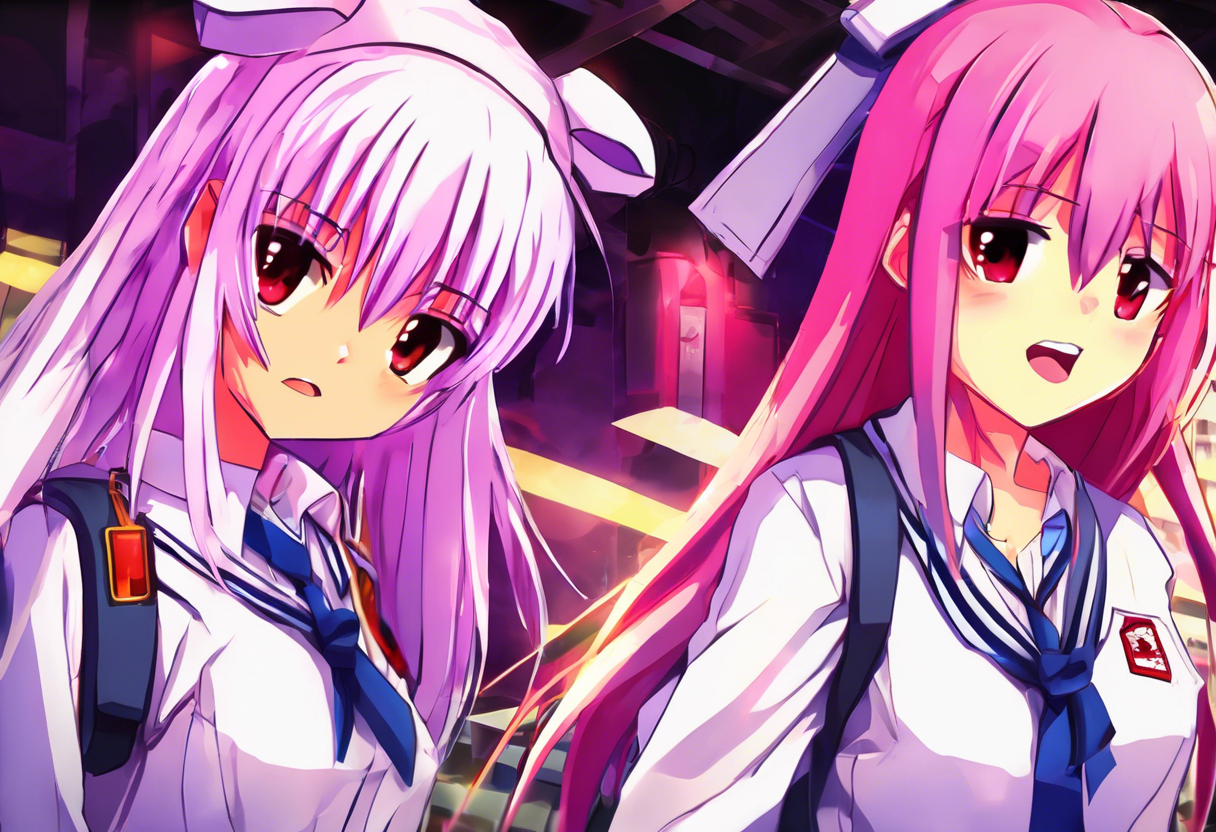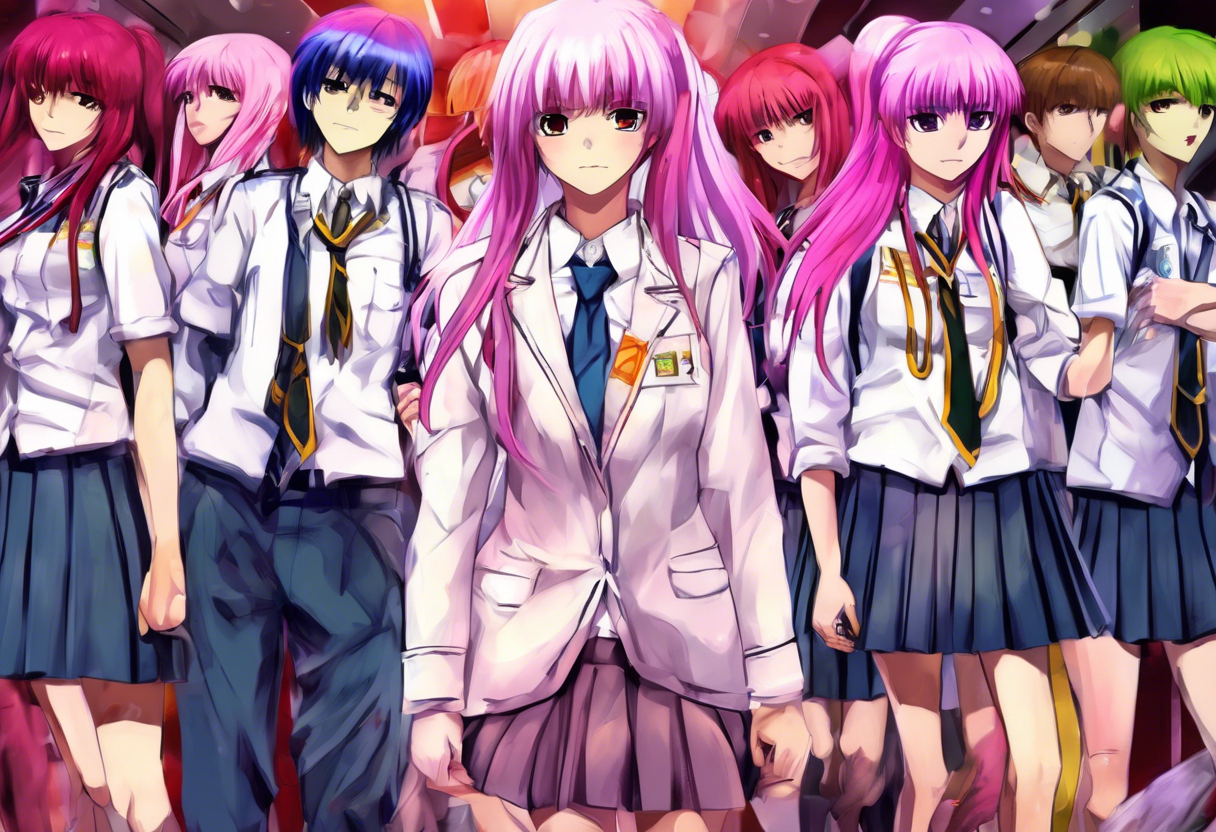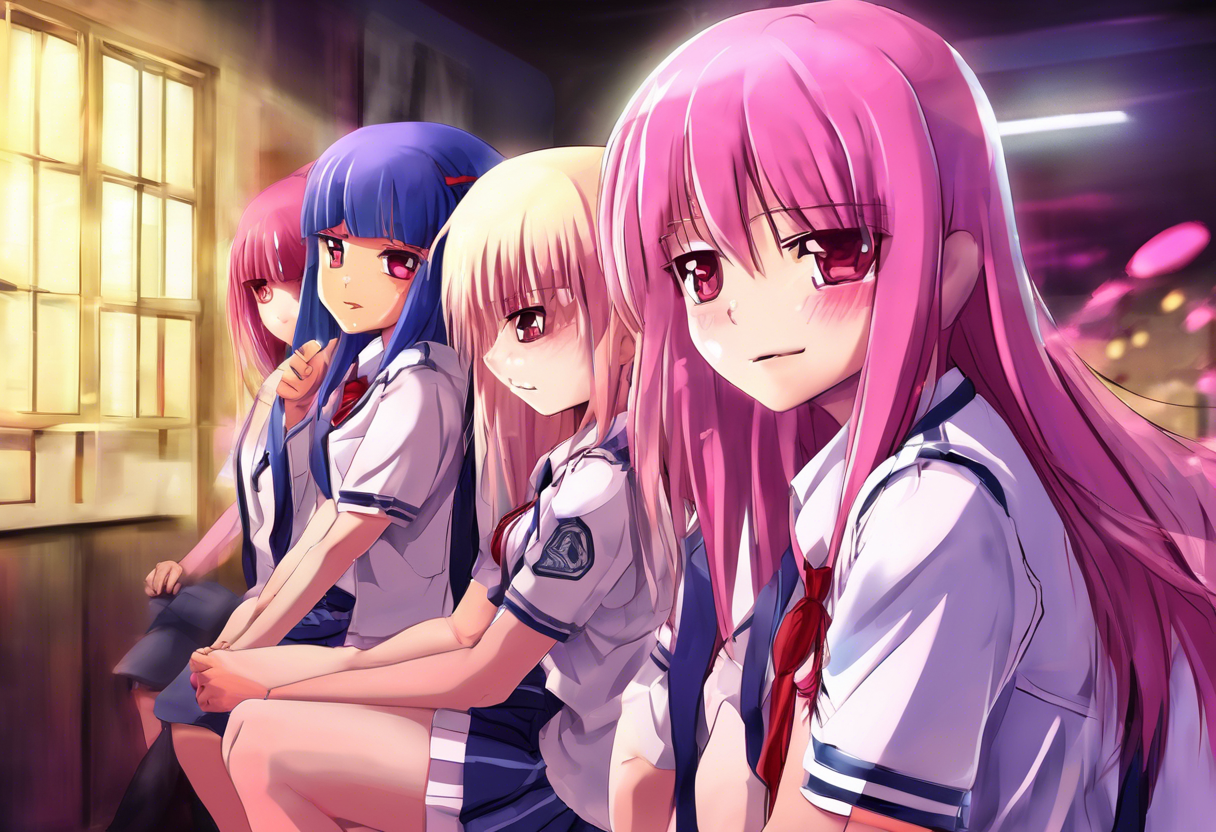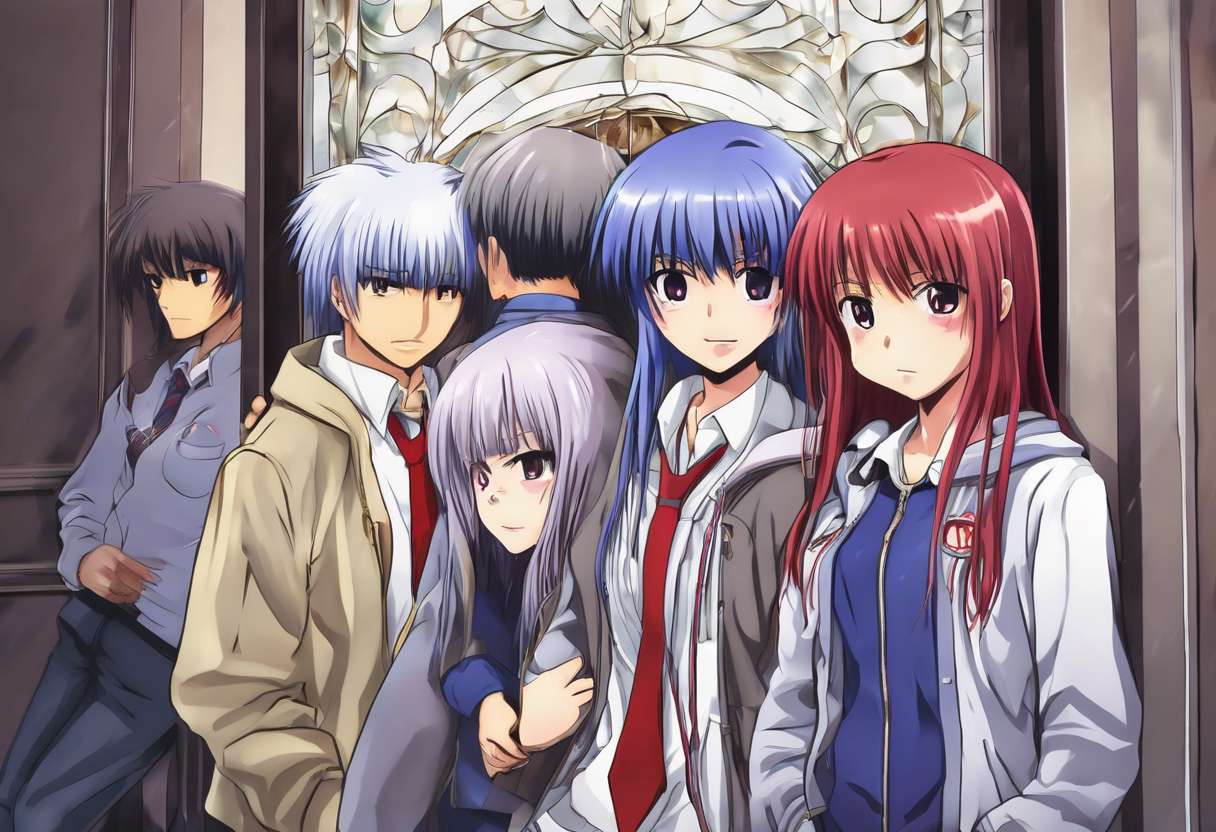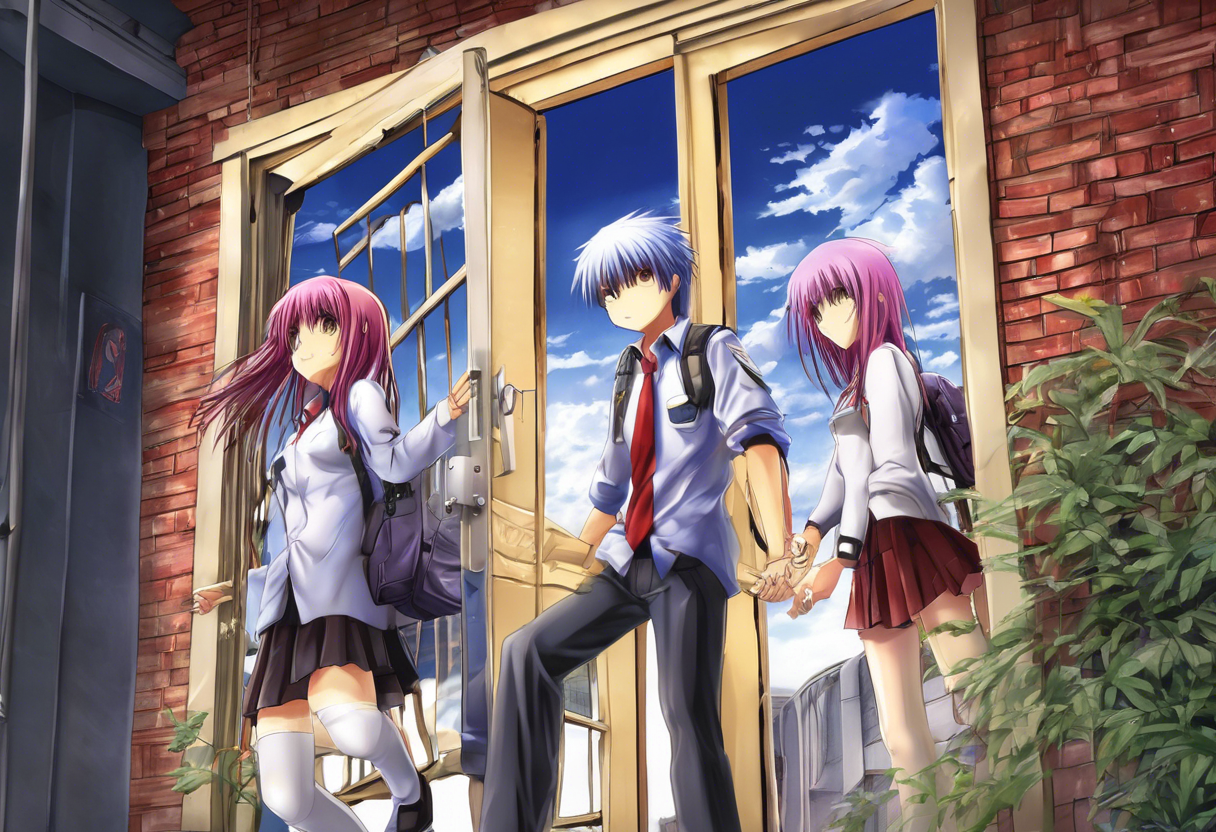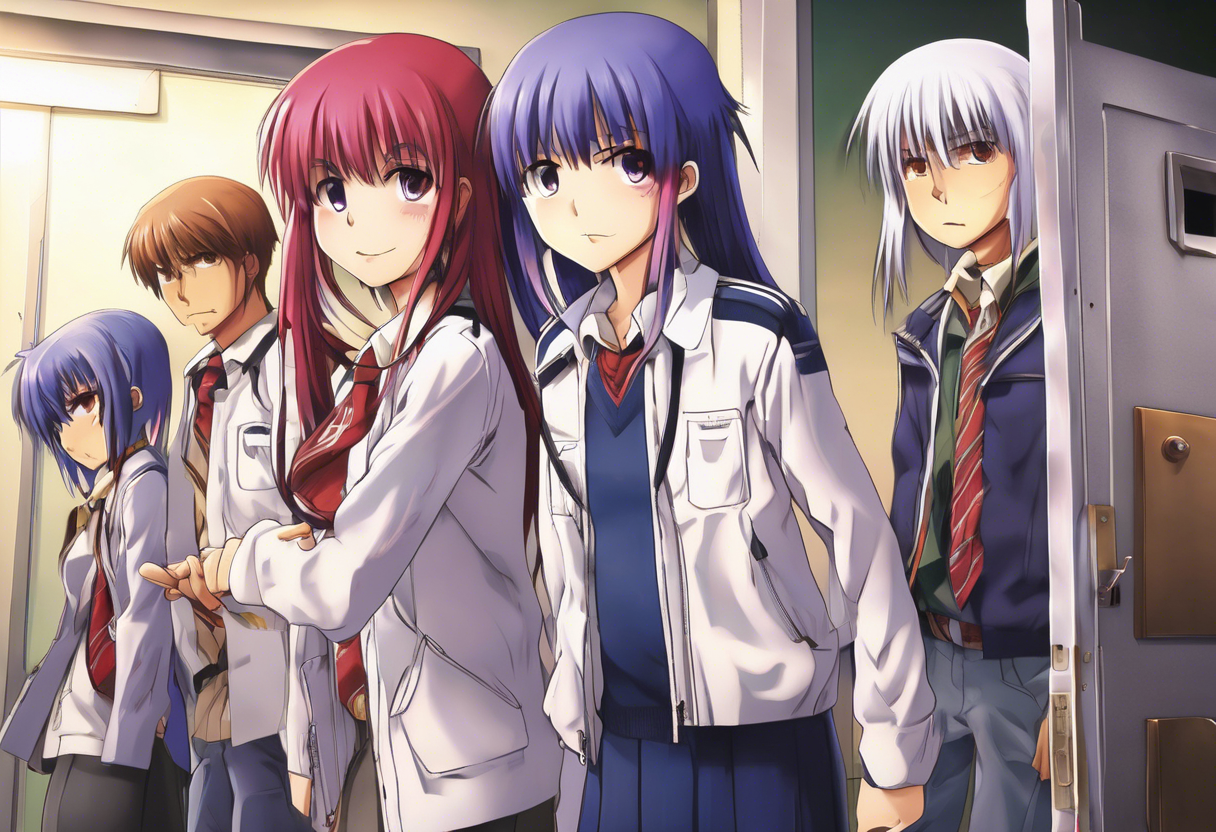Angel Beats! – Episode 12: “Knocking on the Door” serves as the climactic conclusion to the anime series Angel Beats!, wrapping up major storylines and character arcs with emotional resolutions and dramatic confrontations. Directed by Seiji Kishi and written by Jun Maeda, this episode was originally released in June 2010 as the final installment of the 13-episode series, produced by P.A. Works and Aniplex. It stands out within the anime medium for its unique blend of supernatural action, heartfelt drama, and existential themes centered on youth and redemption, concluding a narrative that resonated deeply with fans for its poignant exploration of life after death in a liminal school setting.[4][5]
The episode begins as the surviving members of the Afterlife Battlefront come to terms with the gradual passing on of their friends, acknowledging that their regrets have been resolved and they can move on to the next stage of existence. Otonashi, the protagonist, bids farewell to the members of Girls Dead Monster, the band that previously served as a vibrant, if secondary, part of the show’s atmosphere; the band members have now all decided to pass on, symbolizing the closing of a chapter and a shedding of excess narrative threads. This departure is met with mixed feelings, signaling the end of an era within the afterlife world but also focusing the story more tightly on the core group of characters with significant unresolved struggles.[1][2]
Shortly thereafter, the episode shifts into high-stakes action as mysterious shadow-like entities re-emerge, threatening to erase the residents of the afterlife by converting them into NPCs—empty, unthinking avatars devoid of selfhood or memory. Yuri Nakamura, the leader of the Afterlife Battlefront, is swiftly ambushed and transformed into an NPC herself, leading to a disorienting sequence where her suppressed awareness fights to recall her identity and past connections. Despite her temporary loss, a fierce battle ensues as Otonashi, Kanade Tachibana, Hinata, and Naoi spring into action to rescue Yuri and fend off the Shadows. The tension combines with a meaningful insight into the characters’ resolve to protect each other and defy the forces that would snuff out their individuality.[3][4]
As the fighting intensifies, Yuri experiences defragmentation of her memories but gradually regains her consciousness and sense of self. This moment becomes a turning point not only for her survival but also for her emotional growth. Having been forced to experience life as an NPC—essentially a blank slate without memories or regrets—Yuri comes to appreciate the pain and significance of her own past life. This realization deepens the episode’s meditation on the themes of memory, identity, and acceptance. Yuri’s awakening galvanizes the group to descend into the “Second Computer Room,” a surreal, cybernetic environment symbolic of the afterlife’s control system, where the source of the Shadows’ power and manipulation machinery is revealed.[3][4]
Within this digital sanctum, Yuri confronts an AI entity controlling the paradoxical system of the afterlife, designed to prevent a true paradise from emerging by attacking when love and connection grow too strong among the residents. This antagonist symbolizes the hurdle between the characters’ liberation and the oppressive rules shaping their limbo existence. Through Yuri’s determination and the support of her friends, the group succeeds in dismantling this system, effectively ending the threat of the Shadows and allowing the inhabitants to pass on if they are ready. This abolition of the oppressive system metaphorically represents breaking free of the regrets and constraints that once held the souls captive.[3][4]
As the dust settles, the story moves into a deeply emotional farewell sequence. Yuri, Naoi, Hinata, and eventually other fighters find peace and pass on, leaving only Otonashi and Kanade as the final residents of this purgatorial school. In a quietly profound moment, Otonashi confesses his love to Kanade, highlighting the human capacity for connection even in the most surreal of circumstances. Treasuring the bonds forged through shared suffering and hope, they hold a graduation ceremony to symbolize their readiness to move on. Kanade reveals that her own lingering regret was never having thanked Otonashi, her heart donor, in her life, providing a bittersweet closure to her character arc. After expressing her gratitude, she passes on, leaving Otonashi alone but fulfilled.[4][5]
The episode closes on a haunting yet hopeful note. Otonashi remains in the afterlife briefly, devoting himself to helping other lingering souls find peace, illustrating themes of altruism and selflessness that permeate the series. Unexpectedly, in an epilogue-like scene, characters resembling Otonashi and Kanade appear in the real world, suggesting a possibility of reincarnation, reunion, or continuation beyond the afterlife. This final scene invites viewers to interpret the story’s ending as an affirmation of life, love, and the eternal bonds that transcend death.[4]
“Knocking on the Door” is rich in themes of forgiveness, acceptance, and the bittersweet nature of moving on. The episode’s exploration of regret and redemption threads through each character’s farewell, illustrating how unresolved emotions tether souls and how embracing one’s past enables liberation. The presence of Shadows and the AI system serves as a metaphor for internal and external struggles preventing individuals from achieving peace. Yuri’s conversion to an NPC and subsequent awakening symbolizes the blurred lines between self-identity and loss, emphasizing the importance of memories and relationships in defining one’s existence. The final confession of love between Otonashi and Kanade exemplifies the transformative power of human connection, serving as a poignant counterpoint to the episode’s darker motifs.[3][4]
Symbolism is woven throughout the episode with the afterlife school itself representing a liminal space of unresolved adolescent trauma and unfulfilled desires. The fight against the Shadows is more than a physical battle; it is a struggle against nihilism, conformity, and emotional erasure. The “Second Computer Room” epitomizes the artificial mechanisms governing fate and existence, making Yuri’s destruction of the AI an act of rebellion against predetermined destiny. The graduation ceremony functions symbolically as a rite of passage, affirming growth and the readiness to embrace death as a natural and meaningful transition. These elements combined elevate the episode beyond mere entertainment into a meditation on life, death, and meaning.[4][5]
Upon release, Episode 12 was met with considerable attention for how it resolved the narrative’s complex threads, receiving praise for its emotional depth and ambitious thematic ambitions. Fans appreciated the heartfelt farewells and the way it gave closure to central characters, particularly Yuri and Kanade. However, some criticism arose regarding the pacing and the rush to conclude so many storylines in a limited runtime, which led to mixed opinions about secondary characters’ development and some plot elements. Despite these critiques, the episode’s cultural footprint remains strong; it is frequently cited in discussions of anime that blend supernatural elements with poignant drama, and it has influenced similar works exploring life-after-death themes. The evocative music, including tracks by Girls Dead Monster, continues to be celebrated in anime music communities.[4][1][2]
Critically, the episode has been praised for its character-driven climax and its emotional resonance, with reviewers highlighting the balance of action and introspection. The portrayal of Yuri’s internal struggle and redemption was noted as particularly compelling, and the episode’s willingness to confront existential questions earned it respect. Conversely, some commentators found the sudden disappearance of supporting characters and the mechanistic resolution of the Shadow conflict less satisfying, viewing them as narrative shortcuts in an otherwise affecting finale. Nonetheless, the episode has maintained a positive reputation over time, often studied for its narrative structure and thematic coherence.[3][2]
The legacy of Angel Beats! – Episode 12 lies in its lasting influence on how afterlife and supernatural stories can be told with emotional complexity and a focus on character growth. It remains a reference point for creators blending action, comedy, and pathos within a fantastical context. Its impact is visible in subsequent anime and media dealing with limbo, death, and memory, inspiring storytellers to pursue narratives that intertwine human psychology with metaphysical exploration. The episode’s enduring relevance is reflected in ongoing fan engagement, critical discourse, and academic interest in its treatment of youth, regret, and the human spirit’s resilience.[4][5]
References
- http://thestuffstoreofstuff.blogspot.com/2015/11/short-series-angel-beats-ep-12-knockin.html
- https://antiotaku.wordpress.com/2010/06/21/angel-beats-episode-12-%E2%80%93-the-things-we-do-for-love/
- https://xenodude.com/2020/06/19/angel-beats-ep-12/
- https://en.wikipedia.org/wiki/Angel_Beats!
- https://www.johndiew.com/angel-beats-episode-12-knockin-on-heavens-door/

